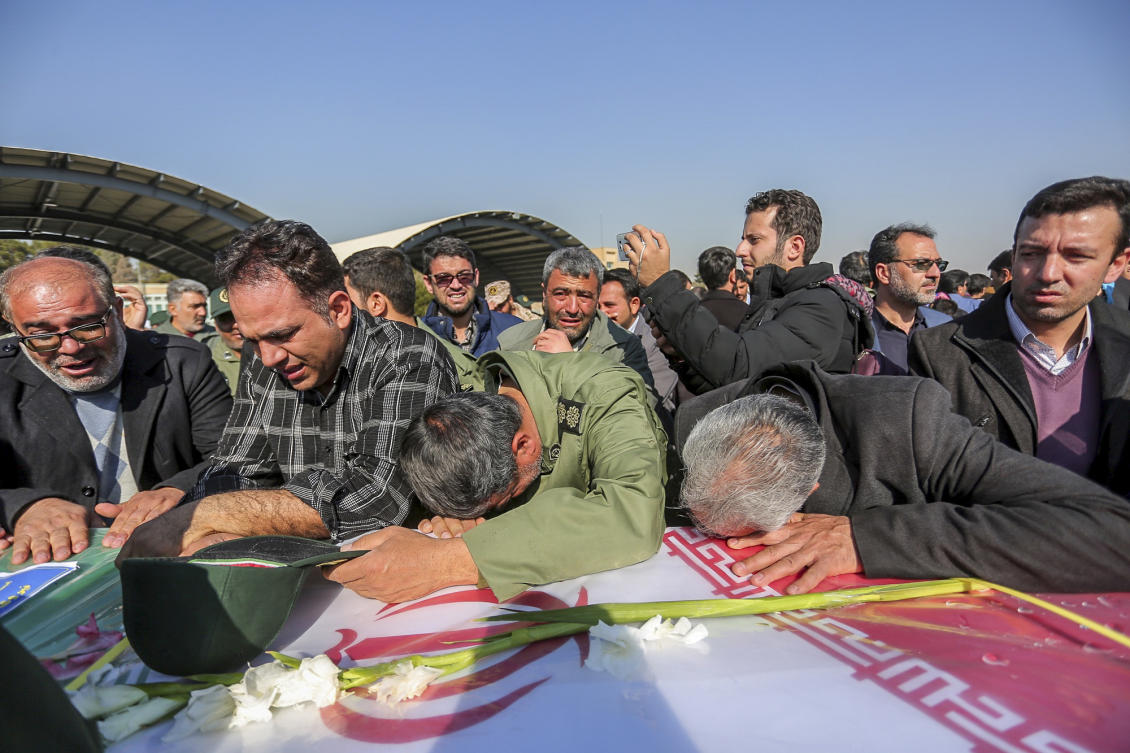Russia tells Turkey to get Assad’s ‘green light’ for safe zone in Syria
ANKARA: Russian President Vladimir Putin hosted on Thursday a key summit on Syria with Turkish President Recep Tayyip Erdogan and Iranian President Hassan Rouhani in Sochi.
Statements from the Kremlin emphasizing the need for a “green light” from Syrian President Bashar Assad for the creation of a safe zone inside the country have been a game-changer for the future of Syrian politics.
Nicholas Danforth, a visiting senior fellow at the German Marshall Fund of the US, thinks that the policies adopted by the Kremlin during the Sochi summit are in line with Russia’s longstanding emphasis on maintaining Syria’s territorial integrity.
“Turkey, Iran and Russia shared an interest in pressuring the US to leave, which helped facilitate Russia’s tacit support for Turkey’s Afrin operation. With Trump announcing the withdrawal of US forces, this shared interest is gone, and the parties’ conflicting goals will come to the fore,” Danforth told Arab News.
If Turkey and the US now appear to be cooperating in the creation of a safe zone, that would give Russia additional incentive to oppose it, he suggested.
The trilateral summit brought to light emerging tensions between Moscow and Ankara over what will follow the planned withdrawal of US forces from Syria.
While Turkey intends to establish a safe zone — clear of the Kurdish YPG militia — in the regions of northeastern Syria near the Turkish border, Russia insists that any plan involving action within Syrian territory must have Assad’s consent.
Ahead of the summit, Russian Foreign Ministry spokeswoman Maria Zakharova made this clear, saying, “The question of the presence of a military contingent acting on the authority of a third country on the territory of … Syria, must be decided directly by Damascus.”
However, experts doubt that Erdogan will consent to any moves that could be seen to legitimize Assad. From the onset of the Syrian conflict in March 2011, Russia and Iran have been on the side of Assad’s government, while Turkey has backed opposition groups.
Emre Ersen, a Syria analyst at Marmara University in Istanbul, thinks that although Ankara and Moscow disagree on a number of significant issues regarding Syria, they are both aware that they need to maintain their political and military dialogue in order to protect their long-term interests in the region,
“Therefore, they are doing their best to find a middle way with regard to thorny issues like Idlib, the future of Assad, the YPG and the situation to the east of the Euphrates River,” he told Arab News. “For Turkey, it is important to keep Russia and Iran by its side, considering that there are still significant uncertainties about the US plan to withdraw from Syria.”
Ahead of the summit, the Kremlin made it clear that it is running out of patience with Ankara over its promises in the northwestern Idlib region, where a demilitarized zone was supposed to have been implemented in accordance with a joint deal between Russia and Turkey in September.
Idlib is still the last pocket of resistance to Assad. The dominant force there is the Al-Qaeda-linked Hay’at Tahrir Al-Sham (HTS) umbrella group. Turkey, already host to more than 3.5 million Syrian refugees, is concerned about a further influx from Idlib in the event of military action against hard-line fighters there.
HTS, whose takeover in Idlib is pushing international aid agencies to pull out of the region, is also trying to take control of the key M5 highway, a vital economic supply line between Damascus and Turkish markets.
Experts do not expect Turkey to act unilaterally to establish safe zones without Assad’s consent, however, as that would risk the wrath of both Russia and the US.
“From the beginning of the crisis, Turkey has always gained ground in Syria by taking advantage of disagreements and policy clashes between Washington and Moscow, and getting the support at least one of them,” Dr. Kerim Has, a Moscow-based Russia analyst, told Arab News.
“Acting unilaterally in north-eastern Syria could cause many military and political troubles in Turkey’s relations with the US, and Russia may also raise its eyebrow, claiming violations of Syria’s sovereignty and territorial integrity,” he explained.
According to Has, Ankara will need to reach a consensus with the US — the main actor in Manbij and eastern parts of Euphrates — on America’s withdrawal strategy, and, at the same time “coordinate its actions with Moscow on the parameters of the so-called safe zone or some border security measures.”
Has believes that, given the current problematic nature of dialogue between Ankara and Damascus, the Turkish president would likely ask Moscow for approval of even a minor military incursion in Manbij or north-eastern Syria.
“Moscow may prefer first to see some concrete steps of US withdrawal on the ground. The Kremlin’s consent for such a limited operation would certainly play into the hands of President Erdogan before the local elections in Turkey on March 31,” he said.
However, support from the Kremlin will come with a price, Has underlined.
“Probably, while waiting to see what the US withdrawal evolves into, Moscow will encourage the Turkish army to fight the HTS in Idlib in a more effective way, and will push Ankara to facilitate the advance of Russia-led regime forces in the region,” he said.

Putin: Only Syrians can determine political fate of their countryUS-backed Syrian forces clearing Daesh remnants from villages




